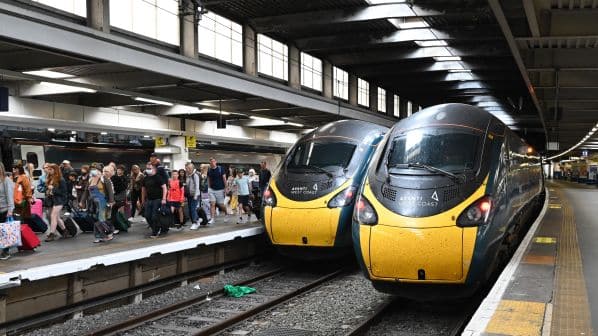THE British government published its draft Rail Reform Bill on February 20. It specifies the establishment of Great British Railways (GBR) as a new arm’s-length body to oversee the railway sector.
Also included are changes to national passenger operating contracts, which GBR will oversee and award, and long-promised ticketing reform.
However, with a general election due later this year, it is unclear whether Parliament, which will be dissolved when an election date is announced, will have time to debate and pass the proposed legislation.
The scope of the bill is largely limited to England, with devolved powers for Scotland and Wales allowing ministers there to exercise their own preferences, but with an option to delegate contracting authority to GBR to enable the integration of infrastructure and operations across Britain if they wish to do so.
“This draft bill demonstrates our commitment to reforming the railways – working with industry, we will move towards a more modern and financially secure rail network that delivers for passengers for the next 200 years,” says transport secretary, Mr Mark Harper.
The draft Rail Reform Bill will now undergo pre-legislative scrutiny, led by the Commons Transport Committee of MPs.
The national headquarters of GBR will be in Derby, which was chosen following a highly-publicised campaign and public vote. An interim body, the Great British Railways Transition Team (GBRTT) has been at work since 2021 to plan the creation of GBR.
Responding to the publication of the draft Rail Reform Bill, Rail Partners chief executive, Mr Andy Bagnall, says: “The publication of the draft bill is a useful step forward, which clearly recognises that train companies add significant value to passengers and freight customers, alongside a guiding mind.”
“Rail reform doesn’t have to be a binary choice between a monopoly railway in public hands and franchising. We must embrace the best of both worlds, focusing the system outwards on customers by empowering operators to meet their needs, but also creating a single accountable body so the public knows who is in charge.”
Also on February 20, the British government published its response to the public consultation on its Plan for Rail that attracted nearly 2500 responses. The response states how the public’s views on the proposed reforms have informed what has been taken forward in the draft Rail Reform Bill.
“The faster the Government pushes on with rail reform the faster we can remove uncertainty about the future structure of the industry and get on with building a vibrant and world-class railway for the future, delivering economic growth and enhanced connectivity across the UK in the decades ahead,” says Darren Caplan, CEO of the Railway Industry Association.


